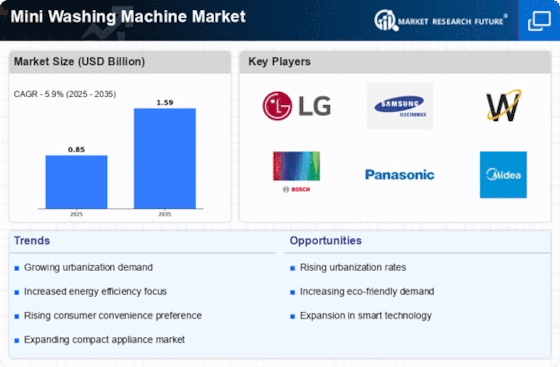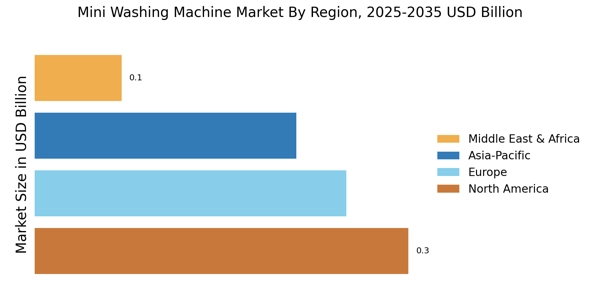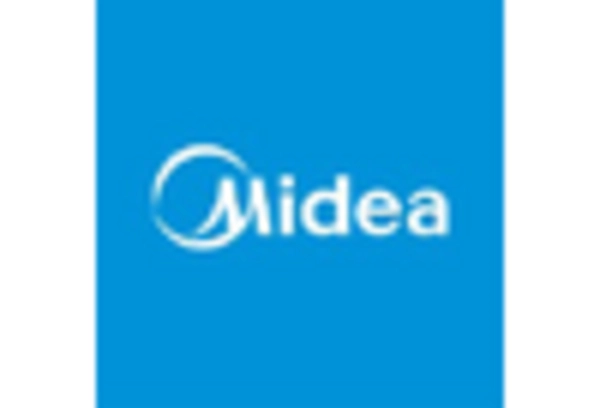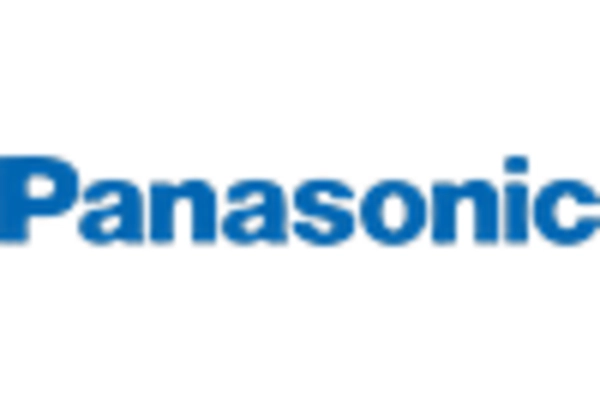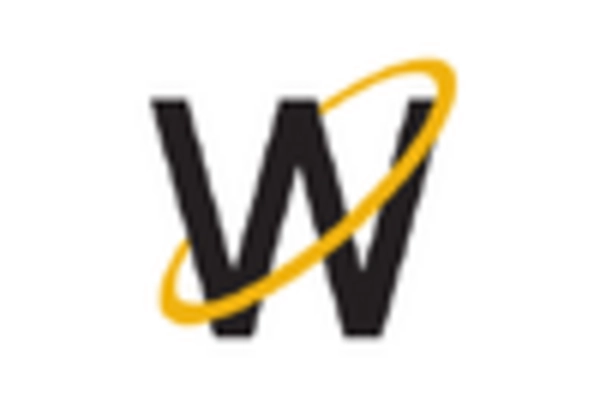Technological Innovations
Technological advancements play a crucial role in the mini washing machine Market, as manufacturers continuously introduce innovative features to enhance user experience. Smart technology integration, such as app-controlled washing machines and energy monitoring systems, is becoming increasingly prevalent. These innovations not only improve convenience but also appeal to tech-savvy consumers who seek modern solutions for their laundry needs. Data indicates that the market for smart appliances is expected to grow by over 20% in the coming years. As a result, the Mini Washing Machine Market is likely to benefit from this trend, as consumers are drawn to products that offer both functionality and cutting-edge technology.
Changing Consumer Lifestyles
The Mini Washing Machine Market is influenced by evolving consumer lifestyles, particularly among younger generations who prioritize convenience and efficiency. With busy schedules and a growing emphasis on multitasking, consumers are increasingly seeking appliances that can simplify their daily routines. Mini washing machines, which offer quick wash cycles and compact designs, align well with these lifestyle changes. Industry expert's indicates that nearly 50% of millennials prefer appliances that save time and effort. This shift in consumer preferences suggests that the Mini Washing Machine Market is well-positioned to cater to a demographic that values convenience, potentially leading to sustained growth in the sector.
Increasing Space Constraints
The Mini Washing Machine Market is experiencing growth due to increasing space constraints in urban living environments. As more individuals and families reside in apartments or smaller homes, the demand for compact and efficient appliances rises. Mini washing machines, which occupy less space while providing adequate washing capabilities, are becoming a preferred choice for consumers. According to recent data, approximately 60% of urban dwellers express a preference for space-saving appliances. This trend indicates a shift in consumer behavior, where functionality and convenience take precedence over traditional, larger washing machines. The Mini Washing Machine Market is thus positioned to capitalize on this growing need for compact solutions, appealing to a demographic that values both efficiency and practicality.
Rising Environmental Awareness
The Mini Washing Machine Market is also benefiting from a heightened awareness of environmental issues among consumers. As individuals become more conscious of their ecological footprint, there is a growing preference for energy-efficient and water-saving appliances. Mini washing machines typically consume less water and energy compared to their larger counterparts, making them an attractive option for environmentally conscious consumers. Recent statistics suggest that around 45% of consumers prioritize sustainability when making appliance purchases. This trend not only drives demand for mini washing machines but also encourages manufacturers to innovate and develop more eco-friendly models. The Mini Washing Machine Market is thus likely to see continued growth as sustainability becomes a central theme in consumer decision-making.
Affordability and Cost-Effectiveness
Affordability is a significant driver in the Mini Washing Machine Market, as consumers seek cost-effective solutions for their laundry needs. Mini washing machines are generally priced lower than traditional models, making them accessible to a broader range of consumers. This price advantage is particularly appealing to young professionals and students who may have limited budgets. Recent market analysis shows that the demand for budget-friendly appliances has surged, with mini washing machines often being the preferred choice for those looking to save money without compromising on quality. The Mini Washing Machine Market is thus likely to continue thriving as affordability remains a key consideration for consumers.


